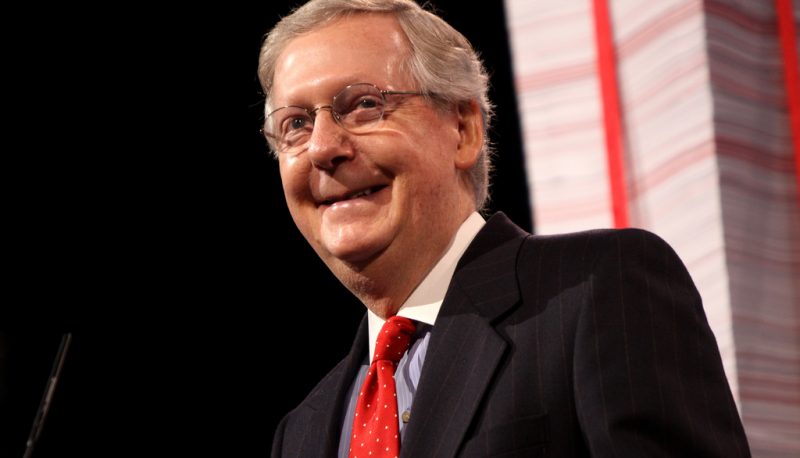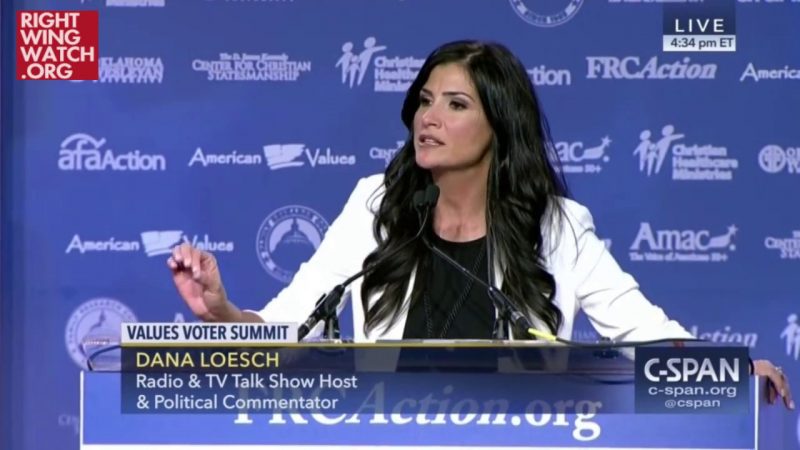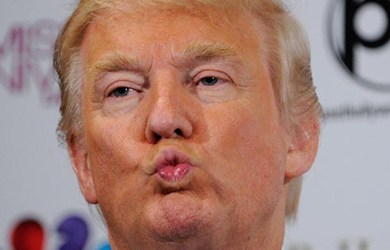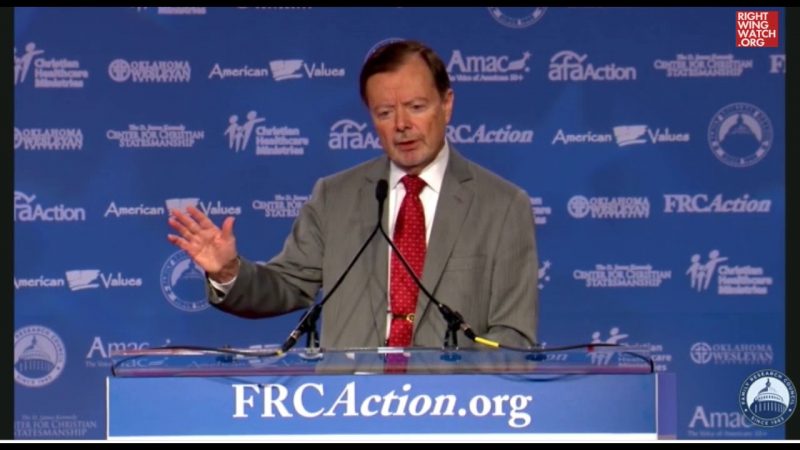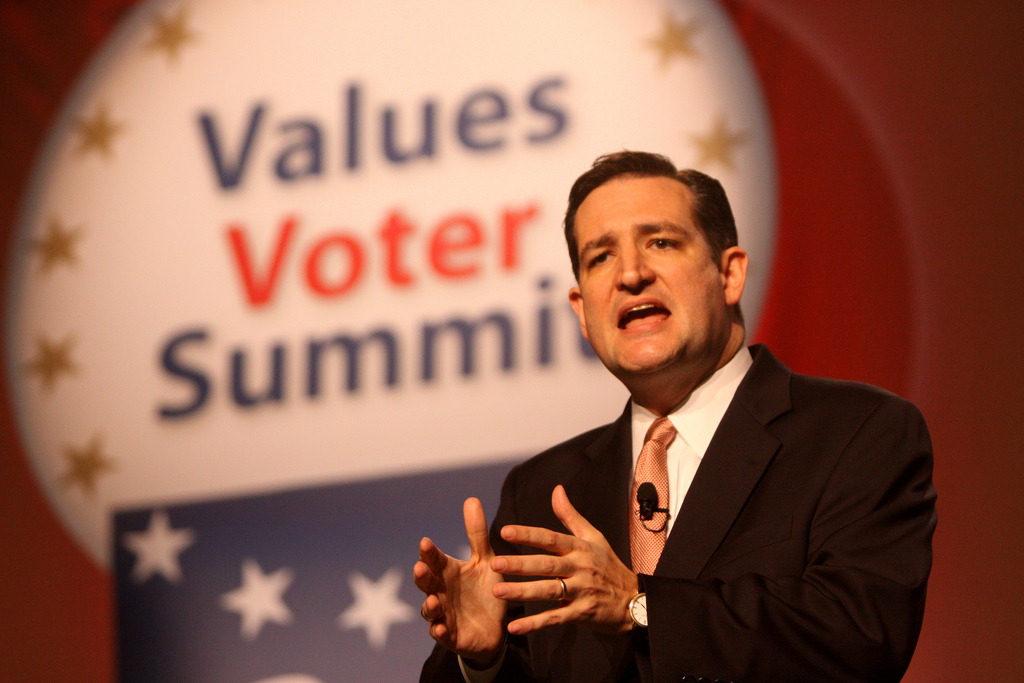What a difference a few months makes. Just ask Senate Majority Leader Mitch McConnell. In June, Religious Right activist Ralph Reed introduced McConnell at the Faith and Freedom Coalition’s Road to Majority conference as “a gift to the United States of America” and “one of the most distinguished public servants who has served in the Senate in our lifetimes.” McConnell had seemingly entered the Religious Right’s pantheon of heroes for blocking Senate consideration of Obama Supreme Court nominee Merrick Garland, ensuring the seat was vacant so that President Donald Trump could name Religious Right dream justice Neil Gorsuch.
But at the Family Research Council’s Values Voter Summit this past weekend, in the very same hotel ballroom, McConnell was mocked, vilified and targeted for defeat. The conference’s star speaker, after Trump himself, was Breitbart brawler Steve Bannon, who declared all-out war against the Republican establishment and specifically against McConnell and his Senate colleagues.
Bannon knew his audience, beginning his remarks with a quote from scripture, the litany that begins “To everything there is a season…” Bannon’s point was that there would be a time for waging war against the Religious Right’s traditional enemies—liberals, Democrats, secular-minded Americans—but that this is the season for a war on Republicans who are not sufficiently aligned with Trump—a group that Bannon had recently said includes every Republican senator except for Ted Cruz.
Bannon and Religious Right leaders are furious that McConnell mobilized an unsuccessful big-spending primary campaign in Alabama on behalf of Sen. Luther Strange and against Christian nationalist Roy Moore. Moore is a Religious Right folk hero for having twice defied federal court orders—on a Ten Commandments display in his courthouse and on marriage equality—that conflicted with his religious beliefs.
Bannon portrayed the Moore-Strange race as a battle between the “corporatists” and the people. He railed against party bosses and Republican funders for thinking that people in Alabama were “a bunch of morons” whose minds could be changed by a deluge of TV ads. In Alabama, he said, the money didn’t matter because Tea Party activists, evangelical Christians and conservative Catholics were going door-to-door to talk to people about voting for Roy Moore.
Having the Values Voter Summit given over to the aggressive nationalist economic populism preached by Bannon—who railed against elites’ “economic war crimes” against working class America—was jarring to anyone who has watched Religious Right leaders and institutions like the free-trade-supporting Heritage Foundation work with Koch-backed groups like Americans for Prosperity to convince Religious Right voters that laissez-faire, free-market economics is a biblical mandate.
Bannon acknowledged that he and his warriors have to “convert” some people at conservative and libertarian institutions like Cato, Heritage, and the American Enterprise Institute. But he said that victories like Moore’s will lead to more victories, suggesting that Moore’s defeat of the Trump-endorsed Strange had pushed Trump into a flurry of actions meant to please right-wing activists on immigration, health care and religious liberty. Bannon also said the Moore victory made Sen. Bob Corker from Tennessee, who recently announced that he would retire, realize that the millions of dollars he had in the bank would not save him from what would have been a challenge from fired-up, right-wing grassroots activists.
FRC started the summit with a disclaimer that speakers’ views do not necessarily represent the organization’s, but they certainly knew what they were getting into when they put Bannon on stage. Values Voter Summit leaders may have been convinced to support Bannon’s civil war for the Republican Party by the huge policy gains they have won by supporting Trump, who has given them almost everything they’ve asked for. Perhaps they had also been primed by their frustration with corporate America’s support for LGBT equality and nondiscrimination ordinances. Opponents of LGBTQ equality like the Heritage Foundation’s Ryan Anderson have railed against corporate support for nondiscrimination laws, calling business leaders opponents of religious freedom.
Bannon told Values Voter activists that by replacing other Republican officials with people like Moore, they will be undoing the damage caused by globalism and ensuring the transmission of the values of the Judeo-Christian West, echoing the rhetoric of right-wing religious and nationalist movements in Europe and Russia.





